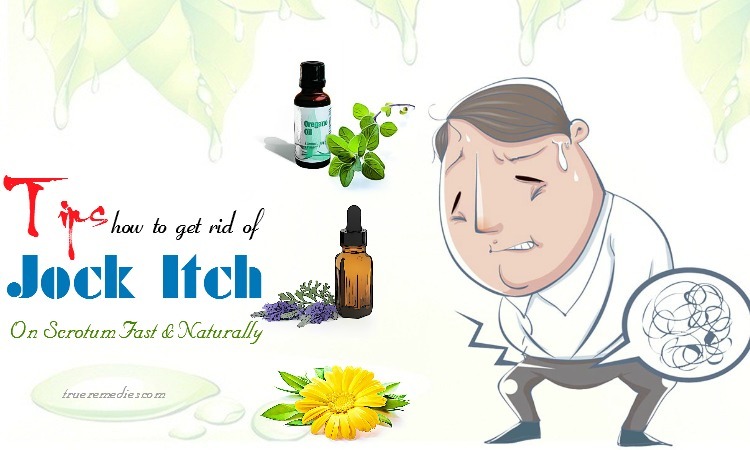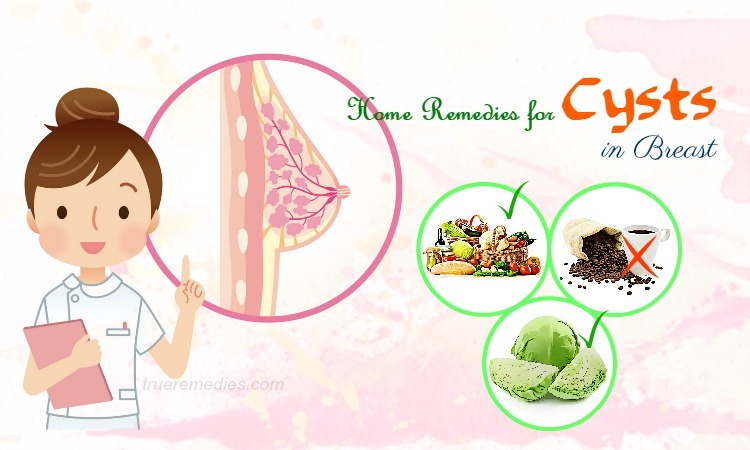Updated: 11/21/2019
Contents
Swollen glands are a condition in which the lymph nodes are located at one or more positions on the body. Lymph nodes play a very important role in the body’s immune system. Swollen glands may occur for a short time and disappear on its own, or it may be an unpredictable manifestation of a serious illness.
In this article, we will provide you with the basics you need to know about swollen glands. Thus, you will have the most comprehensive view of this condition Following are home remedies for swollen glands in the neck, throat, and armpits which are very effective will also be presented simply, so that you can apply them at home to treat this problem, hopefully avoiding medical assistance.
What Are Swollen Glands?
Swollen glands are sometimes called swollen lymph nodes. Lymph nodes are small organs of the immune system and are found throughout the body. Lymph nodes are important components of the human lymphatic system. The lymph nodes are located inside the human body. They are involved in the production of antibodies and cells for the immune system. This prevents the risk of viruses and harmful bacteria which may attack and cause dangerous diseases. A human body will have about 450-1,000 lymph nodes scattered in many parts of the body in small groups. They are usually concentrated in some areas such as the neck, armpit, and groin.
Lymph nodes are located in the major segments of the blood vessels. The size of the lymph nodes is usually about 1-2cm and may be swollen when the body has a disturbance in the immune system. Lymph nodes also have important implications for the diagnosis. They are hot or swollen in various conditions. In cancer patients, the condition of the lymph nodes is so remarkable that it is used to determine the stage of cancer[1] [2].
Swollen glands are a common complication of bacterial infections. The lymphatic system is part of the immune system that includes organs, glands, ducts and vessels throughout the body. It produces and transports lymph from tissues through blood vessels into the blood. Swollen glands may be a sign that the infection is serious. It may lead to sepsis and other life-threatening infections. Swollen glands may occur in one or more areas of the body.
TrueRemedies Partner Solutions

Need a Help from the Leading Expert Online, Available 24/7?
They’re all here and ready to answer your questions online or by phone. Keep asking questions until you get the answer you need.
Swollen glands are usually not severe. The swollen areas of the skin will be uncomfortable for the patient, and if left untreated, they will become very severe. But do not worry; in fact, you can treat them for 1-3 weeks. However, if this condition lasts and is accompanied by a number of other manifestations, it may be related to more serious conditions such as cancer of the blood.
What Are Common Causes Of Swollen Glands?
Swollen glands are usually the result of an acute infection caused by streptococcus. It may also be caused by a staph infection, but this is rare. These infections cause inflammation of the lymph nodes. Swollen glands may be a sign that an infection is worsening. Then, bacteria may spread to the bloodstream and cause life-threatening problems. Other causes may include:
Common infections because of:
- Sore throat
- Measles
- Ear infection
- Tooth infection
- Mononucleosis
- Skin infections, such as cellulitis
- HIV/ AIDS
- Other less common infections, such as TB and syphilis
Immune System Disorders Because Of:
- Lupus – a form of chronic inflammation that targets joints, skin, kidneys, blood cells, heart and lungs
- Arthritis
Influence Or Metastasis From Some Cancers, Such As:
- Nymphal cancer: A type of cancer that originates in the lymphatic system of the body
- Leukemia
- Breast cancer
- Lung cancer
How To Distinguish Swollen Glands Is Due To Benign Conditions Or Cancer?
- The benign nodules are usually round and small. They may move when you touch them, and they may cause pain.
- Benign nodules tend to decrease as the patient uses antibiotics.
- Nodes caused by cancer are usually big and firm. They do not move when you touch them, and they usually do not cause pain.
- The size of the lymph nodes does not decrease as the patient uses antibiotics, even after a while, they become bigger and bigger.
What Are Common Symptoms Of Swollen Glands?
Symptoms may depend on the location of the swollen glands and the cause of this condition. Symptoms may depend on the location of the nodule and the cause of the condition. Patients may have symptoms of upper respiratory tract infection (runny nose, sore throat, and fever). In addition, patients feel pain in the swollen glands. Pain may occur in the area around the ear, under the chin, the upper part of the neck.
Red skin is also one of the common symptoms of the swollen glands. For example, if the arm is infected, the nodes in the armpit are affected. If the legs are infected, the lymph nodes in the groin are affected. The notes will be swollen and painful when touched.
Fatigue, appetite, headache, muscle aches, chills, and fever may also occur.
Unexplained weight loss is also a symptom you may be concerned about.
Swollen lymph nodes deep inside the body may cause lymphatic flow blockages. Lymphatic flow blockages cause swelling of the legs and hands. For example, swollen lymph nodes in the lungs may cause chronic cough, although you will not be able to feel a swollen nipple in that position.
Who Is At High Risk Of This Problem?
Lymphadenopathy may affect people of all ages. You can control this disease by minimizing risk factors. See your doctor for more information.
When To See A Doctor?
Swollen glands are usually not a serious problem, but if the swelling is persistent, you should seek medical attention, as this condition may be related to serious illness, even cancer. You should also see a doctor if you have one of these signs:
- The condition of swollen glands lasts for more than two weeks or has symptoms such as weight loss, night sweats, fatigue, or fever.
- The swollen lymph nodes are hard. They are fixed to the skin, and they grow rapidly.
- Swollen in the area skin near the collarbone or in the lower parts of the neck.
- Skin in the lymph nodes is red and inflamed.
If you have any of these signs or symptoms or have any questions, please consult your doctor. The condition of each person is different, so consult your doctor about selecting the most appropriate option.
The above is useful information about swollen glands. Hope they help you get the most out of this situation. It is time to find out what the best natural home remedies for swollen glands in the neck, throat, and armpits are. Take a look at TrueRemedies.com!
There is no science-based evidence for the following homemade recipes. The recipes we've focused on include traditional home remedies, so always consult your doctor and check out your health condition regularly.
Top 40 Natural Home Remedies For Swollen Glands In Neck
1. Garlic
Garlic may be the first remedy many people think about when they want to treat swollen glands in the neck. In addition to spices for the dishes, garlic also has a great effect on health. Since ancient times, people have used garlic as a raw material to create effective remedies for many diseases. Garlic possesses excellent antibacterial and anti-inflammatory properties that are beneficial in soothing swollen lymph nodes[3].
Garlic also has a significant effect on the immune system: enhances the activity of cytotoxic lymphocytes, especially CD4, to protect the cell membrane against DNA damage; virus resistance; infection prevention. Nitric acid, diallyl disulfide, diallyl trisulfide and other sulfuric compounds (produced when fresh garlic is crushed) have the ability to inhibit 70 different types of bacteria. Garlic may also prevent some diseases caused by viruses such as influenza and cold. As a result, garlic helps prevent and treat the causes of swollen glands.
All you have to do is add the garlic to your daily meals. Besides, you can also eat 1-2 garlic cloves each day. Many research results from nutrition experts show that in any form, garlic is also very safe and effective in preventing diseases. Eating raw garlic is beneficial because allicin in garlic may be considered a natural antibiotic that may kill bacteria in the oral cavity. However, eating too much garlic is not beneficial because the stomach is easily stimulated and the allicin in garlic may cause hemolysis. According to nutritionists, eating about 10g of garlic daily is the best. After 1-3 weeks applying this remedy, you will notice that your condition has improved significantly.
Note: if sensitive to raw garlic, enteric garlic tablets can also provide antibacterial support.
2. Apple Cider Vinegar
This sounds strange when it comes to home remedies for swollen glands in the neck, but it works. Apple cider vinegar has many effects that you cannot know. It is not the same as regular vinegar because it contains much amount of acetic acid. Apple cider vinegar is a compound capable of destroying harmful bacteria in your body and promoting the growth of beneficial substances (preventing disease). This ingredient contains many useful vitamins and attractive flavor.
Many of us would have heard that antioxidants may reduce free radicals in the body. These antioxidants are found in many fruits, vegetables, and fruits. Free radicals may cause damage to cells and tissues. Apple cider vinegar, when combined with fresh fruits and vegetables, may help boost the antioxidant benefits while enhancing the flavor of these fruits and vegetables. Besides, thanks to its antiviral and antimicrobial properties, apple cider vinegar may also be used to soothe sore throats. As you know, sore throats are also one of the causes of swollen glands. Therefore, you should choose apple cider vinegar to treat swollen glands[4].
All you need to do is mix 1 teaspoon of apple cider vinegar with 1/2 cup of warm water to drink. Besides, you can also mix apples, honey and lemon juice in a ratio of 1: 1: 1 o drink 3 times a day. Your condition will soon be improved and treated thoroughly.
3. Vitamin C
This remedy is also one of little – known home remedies for swollen glands in the neck. Vitamin C is also known as ascorbic acid. It exists in our body in two forms, D and L. These forms of vitamin C participate in various body functions. Vitamin C protects the body from infection by enhancing immunity and improving white blood cell counts in the blood. Swollen lymph nodes are a sign of infection so you should regularly take vitamin C supplements to prevent this condition. You can take vitamin C supplements by consuming fruits and vegetables such as oranges, strawberries, pineapple and kale[5].
4. Massage Therapy
Massage therapy and foam rolling are used popularly for preventing pain, swelling and fluid buildup with tissue. The foam rolling, also called aka self-myofascial release, is a kind of self-massage which is done by a lot of people, both before and after exercising. The purpose of this method is to help tissue fix more quickly and easily and break the muscle as well as tissue adhesions that could result in injuries and tightness. The foam rolling boosts blood flow to the muscles and is resorted to help with faster recovery and better performance.
You can make use of the so-called “lymphatic drainage massage” which is a kind of specialized massage therapy helping cells release toxins and breaking up the lymph congestion. According to studies, it was shown that this therapy is beneficial for reducing pain pressure, intensity and threshold. By massaging, it could activate the lymphatic system and assist in flushing out the excess fluid from within the tissues[6].
A number of massage therapists are particularly trained to practice manual lymphatic drainage. However, in fact, any kind of deep tissue massage is also good. Even, you can massage yourself to decrease pain in swollen lymph nodes, joints or muscles.
5. Colloidal Silver
You can take advantage of colloidal silver as one of the home remedies for swollen glands in the neck and throat. It may attach to the bacteria cell membranes in direct ways and produce respiration-blocking effects. However, unlike antibiotic drugs, this herb does not create any resistance or immunity in the organisms killed by it. Instead, it destroys the disease and infection causing pathogens after just a few minutes of exposing[7].
Colloidal silver also has anti-inflammatory property and could help in decreasing swelling and pain associated with swollen glands. Just simply take one drop of colloidal silver orally or add 5 drops of it to a neti pot to help treat the infection. Bear in mind that you should avoid using it for over 2 weeks in a row.
6. Tea Tree And Lavender Oil
Indian researchers show that tea tree essential oil is helpful in warding off bacteria and infections. Studies show that when applying tea tree oil, there was an instant effect which is followed by a slow-released effect over a period of 24 hours. It means that after using this oil, an initial cellular response happens. After that, the oil keeps working in the body to combat infections[8].
Lavender oil also has antispasmodic, antimicrobial, antibacterial and antiseptic properties that help to cure swollen glands. Combined these oils will give you a good remedy for swollen glands in the neck and throat:
- In a small bowl having warm water, add 3-4 drops of these oils
- Cover your head with a towel and inhale the steam
- Stop for 4-5 seconds and inhale again
- Repeat this routine for about 15 minutes to get good results
- Do this method a few times per day
7. Astragalus Root
Astragalus root may relieve symptoms of swollen glands caused by a viral infection such as mono. It is thanks to the powerful antimicrobial, anti-inflammatory, and antiviral effects. astragalus is famous and commonly used in traditional Chinese medicine to deal with various diseases and body disorders due to its immune-boosting effects[9].
You can take advantage of astragalus in the form of capsule or tincture, or add dried astragalus to hot water.
8. Oregano Oil
In accordance with a study published in Frontiers in Microbiology in 2016, it was shown that oregano oil has a potent antibacterial property which may combat some antibiotic-resistant bacterial strains. The oil showed bactericidal effects against 17 strains tested[10]. Also, oregano essential oil may be used against fungal and viral infections.
In fact, oregano oil benefits outperform prescribed antibiotics as unlike antibiotics; using oregano oil for infection removal does not come with adverse effects, like removing healthy bacteria from your gut and increasing your risk of developing digestive disorders.
In order to treat an infection which causes swollen glands, you can take oregano oil internally for no more than 2 weeks. Remember to dilute it with water or mix it with extra-virgin coconut oil. Using an oil is safer as the direct oil can be caustic to the stomach lining.
9. Honey
Among home remedies for swollen glands in the neck, honey is one of the most effective. Honey is also considered as a natural antibiotic because it may increase the body’s resistance and treat many diseases, including swollen glands.
Honey is really useful for treating swollen glands in the neck, ear and other areas of the body. The honey composition contains over 70 different substances including minerals, organic substances, and vitamins. The results of some studies have shown that: Honey contains a lot of Carbohydrates Protein, vitamins, minerals and antioxidants[11]. At the same time, the amino acids and minerals found in honey help increase the body’s resistance. Therefore, honey has a good antibacterial effect. It also helps treat inflammation. These are all things that patients with swollen glands need.
It is the best to go for Manuka honey which displays significant bactericidal activity against antibiotic-resistant bacteria which cause serious infections[12]. You should look for genuine UMF (Unique Manuka Factor) Manuka honey that has a rating of UMF10 or even higher. This will warrant that the honey you use is recognized by a licensed company in New Zealand. It has been tested the antibacterial performance, and the UMF rating compares it to the phenol – a disinfectant.
All you need to do is use honey to massage gently swollen glands in about 5 minutes, 1-2 times a day. Make this remedy daily and your condition will gradually improve. Note that you need to perform gently to avoid further damage to the affected area. In addition, drinking a cup of warm honey tea every morning is also something you should do to accelerate the treatment. Honey tea is also good for your stomach.
10. Castor Oil
This is another must-try home treatment in this list of home remedies for swollen glands in the neck. Castor oil is a vegetable oil extracted from castor seeds by cold pressing. It was widely used in ancient Egypt and was later used as a medicine in Persia and China. The explorer Herodotus recorded in his book that this oil was also used as an Egyptian ointment. As noted, Queen Cleopatra used this wonderful oil to brighten her eyes. Until the 17th century, new castor oil was known in the Americas and Europe. Castor oil is good for your health. It is a well-known oil with strong anti-inflammatory properties[13]. This natural oil also helps relieve pain and swelling caused by swollen glands. A highlight of castor oil that we must definitely mention is the ability to the antimicrobial. Therefore, when using castor oil to treat swollen glands, you can rest assured about its effect.
To use the oil for swollen glands treatment, all you need to do are: apply a little oil to the affected area, massage gently for about 5 minutes, and then rinse with warm water. Please apply this remedy 2 times a day to quickly achieve the effect.
11. Lemon
This remedy is one of little – known home remedies for swollen glands in the neck. Lemon is one of the most popular citrus fruits in the world. From Indian beauty secrets to Italian dishes, lemons are used all over the world for a variety of uses. Lemon contains many minerals for the body such as vitamin C, vitamin B group pectin, antioxidants, potassium, and calcium. Therefore, it is not surprising that lemon has so many uses!
Lemon juice has been mentioned as a health drink with many effects against disease, including swollen glands. Lemon may balance the pH of the body. Rebalancing the pH of the body is an important way to retain alkalinity in the body to prevent or treat some diseases, especially swollen glands[14]. Lemon oil creates an aroma that relaxes the blood vessels and reduces inflammation. This is one of the important factors that help relieve pain caused by swollen glands. Using a swollen glands treatment is a great choice.
Every morning and evening, enjoy a cup of warm lemon tea after a meal. This not only supports the swollen glands treatment process but also improves your digestive tract. Note that you should only use fresh lemon and warm water to make lemon tea. Do not add any other ingredients, including sugar or salt. These ingredients may reduce the effect of lemon tea.
Note: when using fresh lemon, be sure to brush teeth in order to prevent enamel erosion.
12. Yoga And Exercise
In reality, the lymphatic system may work the most effectively when you move your own body, helping keep the fluids circulating and nutrients reaching cells. It is why staying stagnant may make you feel more stiff, achy, and prone to getting illnesses.
You can exercise in different forms, including walking. This will help keep your lymph fluid flowing. Nonetheless, some types of exercise seem to be highly beneficial, such as yoga, high-intensity interval training (aka HIIT workouts), or rebounding. In general, yoga and exercises are beneficial for swollen glands in the neck.
Yoga brings flexibility and improves expansion and contraction of your muscles[15]. You can try out some yoga poses and exercise in conjunction with other home remedies to promote the function of the lymphatic system. Some postures you can do at home are lion face, downward-facing dog, inverse pose, jumping jacks and simpler ones like brisk walking, jogging, and more to improve your condition.
Rebounding, in essence, becomes more and more popular and involves jumping a small trampoline which you could put inside your own house. This exercise just takes about several feet and 5-10 minutes of jumping every day to keep the lymphatic system operating smoothly and get your heart rate increased.
13. Spirulina
The next treatment in this list of home remedies for swollen glands in the neck is spirulina. Thanks to the high nutritional content, this herb may combat harmful bacteria and viruses. Spirulina has two main effects that are beauty and health care and is green algae of the ocean. It is usually consumed in powder form. And it’s called “super food of the future” because it contains a lot of protein and nutrients, including 8 essential amino acids, vitamins A and B, iron, and calcium. The most important ingredient in spirulina is fertile clement. This component improves blood circulation.
Spirulina is rich in B vitamins, antioxidants, anti-inflammatory, omega-3s and other nutrients that are good for your health and especially good for the treatment of swollen lymph nodes[16]. That’s why adding spirulina as a vitamin or as a capsule is a great way to treat swollen glands. Therefore, regularly consume spirulina every day according to instructions on the package or the doctor’s appointment to achieve the best effect. Sprinkle it to your morning smoothie to reap its benefits.
14. Turmeric
Among common spices used in our kitchen, turmeric is renowned for its tremendous healing effects. The anti-inflammatory and anti-fungal nature of this spice may alleviate symptoms of swollen lymph nodes, making it one of the best home remedies for swollen glands[17]. Turmeric could also be ingested as a tea for the remedy of colds, flu and many other infectious diseases that result in swollen glands.
All you have to do is:
Method 1:
- Mix 1 tablespoon of turmeric powder with honey to have a good paste
- Apply it over your affected area
- After 10 minutes, remove it with tepid water
Method 2:
- Cut a turmeric root into a 1-inch piece
- Steep it in 2 cups of boiling water for about 15 minutes
- Remove the root and sip the tea throughout the day
Also, do not forget to add ½ teaspoon of turmeric powder into a glass of tepid water and have it before your bedtime.
Turmeric supplements are also good for your condition, yet with the consultation of your doctor.
Note: Remember that turmeric may thin the human blood, so those people who are taking blood-thinning medicines should discuss this with their doctor first.
15. Panax Ginseng
Ginseng – an ancient remedy used by both Indian and Chinese cultures for a variety of conditions – is a good solution for colds and flu associated with swollen glands. According to the University of Maryland Medical Center, American ginseng might be beneficial in preventing colds and could alleviate the intensity of symptoms like swollen glands and fever[18].
Ginseng may be found in the capsule or liquid extract form. It is recommended to take 400 mg of this herb daily. Generally, ginseng is considered to be safe when being used in the treatment of acute illnesses, but to have the correct remedy for swollen glands, you should still consult your healthcare practitioner.
16. Chrysanthemum
This is one of the little-known home remedies for swollen glands that you should try. Chrysanthemum works as a strong antibiotic, and it is commonly used in the pharmaceutical industry[19]. It may be used to treat insect bite, sore throats, toothache, respiratory infections.
Chrysanthemum tea is a good choice because it has strong antibacterial properties and is known to relieve stress. Besides, chrysanthemum is a strong antibiotic. Therefore, it may be used against bacteria, viruses that cause swollen lymph nodes in the neck and ears. Enjoy 2 cups of chrysanthemum tea per day for the best results. This is really a very tasty tea.
17. Echinacea
Among home remedies for swollen glands, Echinacea makes its fame due to its medicinal properties[20]. Herbalists use this herb to clean the blood and improve the immune system. Despite the fact that the scientific evidence is rather mixed, there are still some reports that Echinacea may help to shorten the duration of cold, in accordance with the University of Maryland Medical Center. Herbal practitioners who practice both Eastern and Western medicine have used Echinacea to decrease glands’ swelling and treat flu and colds.
You can take it as a remedy in either capsules or powdered form. Or, you add the liquid extract of Echinacea to juices. 300 mg is the recommended dosage. Take it 3 times per day throughout the duration of the ailment but no more than 7 days afterward.
Note: Women who are pregnant or breastfeeding or those taking immune-suppressing medications should not use Echinacea. Always consult your doctor before using Echinacea. People with auto-immune illness should also be cautious and limit its use to no more than a week duration.
18. Ginger
The next one in this home remedies for swollen glands in the neck is ginger. If you want to treat swollen lymph nodes in a natural way, consider choosing ginger. Ginger is often used as a condiment in meals. Fresh ginger contains enzymes that break down proteins into amino acids. This makes food easy to digest.
Ginger has analgesic and anti-inflammatory properties[21]. Besides, ginger also contains antioxidants, so it may inhibit the formation of inflammatory substances (Prostaglandin). A recent study by scientists in the world found that 75% of patients with joint pain and 100% of patients with muscle pain had pain relief and swelling relief with the use of dry ginger at a dose of 500 mg – 1000 mg within 3 months to 30 months.
For all of these reasons, the use of ginger tea daily to treat swollen glands is recommended. Note that you should not drink ginger tea in the evening as this may cause a lot of negative impact on the stomach. Using ginger is considered one of the best natural home remedies for swollen glands.
19. Coconut Oil
The amazing moisturizing effects in coconut oil help to fasten the healing process. It is jam-packed with antibacterial, antiviral and anti-inflammatory properties, making it a great solution for swollen glands[22].
Gently massage your affected area with warm coconut oil to improve blood flow, thereby decreasing swelling. Additionally, you could also consume 1 tablespoon of coconut oil every day.
20. Cinnamon And Basil Leaves
In order to improve the swollen gland condition, you can mix basil leaves with cinnamon to have a remedy. Basil leaves have lots of therapeutic compounds with medicinal properties. Meanwhile, cinnamon has immensely valuable medicinal properties that may handle a number of infections, including swollen glands[23]. Also, cinnamon may remove harmful free radicals from the human body and detoxify it, thereby boosting the immune system.
You can either consume cinnamon or basil leaves separately in the form of tea or mix it together to treat your condition.
If you want to mix them together, take the steps below:
- Add 2 teaspoons each of basil leaves and cinnamon to 3 cups of boiling water
- Let it simmer for 20 minutes
- Strain the mixture and have it 3 times per day
21. Calendula
Calendula, also known as pot marigold, is one of the herbs that are constantly surprising. The more you use this herb, the more you love it. In fact, calendula has a wide range of uses. It is majorly used for swollen glands, for anti-inflammatory purposes and for cleansing the body tissues[24]. Calendula displays its best role when used as an external remedy. Experts said that the value of this herb could not be exaggerated in regard to treating skin issues like wounds, burns, or bruises. Its properties make it a great healing plant that decreases inflammation and soreness while also acting as a natural anti-microbial, thereby making it a basic first aid herb for any issue.
You can prepare an herbal solution for swollen glands by following these guidelines:
- Add 2 parts each of cleavers, calendula, and 1 part of mullein into a glass of water
- Boil this mixture on a medium level for 30 minutes or so
- Cover it using a lid
- Strain and let it cool down
- Have 3 cups of tea every day for 2-3 weeks
22. Onion
It sounds too good to be true in regard to home remedies for swollen glands. Onion remedies are readily at your fingertips in the average kitchen. They are considered the basis of a historical remedy. Internally, onion is used as a stimulant, expectorant, and a diuretic. Onions’ skin is loaded with a compound called quercetin. With anti-inflammatory and anti-allergy properties, onions may stabilize the membranes, not to mention antiviral property[25]. It is metabolized rapidly in several hours, the blood concentrations increases, so if you use an onion remedy, take it with consideration.
In terms of using onion for swollen gland relief, you just need to grate an onion to squeeze its juice and have it. Or, add this ingredient to other vegetables if you do not want to consume it raw.
23. Licorice Tea
Licorice has anti-viral and anti-inflammatory properties, subsiding symptoms associated with swollen glands[26]. To make a tea, follow these instructions:
- Add ½ teaspoon each of dried chamomile flowers, licorice powder, 1 clove and a pinch of cinnamon powder to a cup of water
- Boil it up for some time
- After straining, drink it slowly
- Have at least 2 cups of this mixture daily
Note: people with high blood pressure or who are taking antihypertensives should consult with their doctor first, as licorice may increase blood pressure
There is no evidence for the below information and homemade recipes. So, they have not yet been confirmed or reviewed by any expert. These additional home remedies are collected from some highly appreciated sources. Give them a try.
24. Cold Compress
This is the last treatment in this list of home remedies for swollen glands in the neck that we want to mention in this article. Cold compress significantly reduces swelling and pain. Therefore, when you suffer from uncomfortable pain caused by swollen glands, you can apply this remedy. Note that you should not apply ice for too long, as this may cause cold burns. Besides, you also should not let ice directly on the swollen glands. Cover ice with a cloth bag. People with diabetes or Raynaud’s syndrome should not apply this remedy.
25. Salt Water
To alleviate inflammation and speed up recovery, you can take advantage of sea salt. Salt water gargle may relieve your swollen glands and sore throat naturally. Salt water is not only helpful for relieving throat pain but also lessens the swelling and reduces the size of glands.
What you need to do is:
- Mist ½ teaspoon of salt with a cup of warm water
- Gargle with this mixture a few times per day to get good results
Also, you can mix sea salt with baking soda to get relief from swollen lymph nodes of the neck and throat. For this method, add 1 teaspoon each of sea salt and baking soda to a cup of water. Stir well and drink this once per day.
26. Cayenne Pepper
Acting as a natural stimulant, you should list the cayenne pepper in this list of home remedies for swollen glands. It assists in building up the resistance against swollen glands.
To make use of this ingredient in the tea form, take these steps:
- Add ½ teaspoon of powdered cayenne pepper and 1 teaspoon of honey to a glass of warm water
- After stirring well, have this solution 3 times per day
27. Tea Bags
Actually, this method does not cure your swollen glands at its root, but it may give some relief. Just need to take some tea bags to dip in hot water. Apply it over your painful area. Repeat this routine twice or thrice per day if necessary.
28. Hot And Cold Bath
To relieve swollen glands, you can alternate cold and warm bath. Cold water may alleviate the pain while warm water improves blood circulation. This combination will give you fast relief, and you could do it daily.
29. Nutmeg
Nutmegs have the ability to boost immunity and boost the flow of lymphatic fluid. This herb is packed with antibacterial and anti-inflammatory properties that reduce the lump associated with swollen glands, especially in the armpits.
- Mix 1 teaspoon of nutmeg powder with a cup of hot water
- Add 1 teaspoon of honey (optional)
- Drink this every day while affected
30. Charcoal Compress
To decrease inflammation and pain caused by swollen glands, mix powdered flaxseed with activated charcoal and followed by some water. Apply this mixture over your affected area (especially the armpits), then secure it with a clean cloth or paper towel. Repeat this routine a few times per day to get noticeable results.
31. Watermelon
Watermelon may detoxify the blood while also strengthening the immune system, so it may regulate the lymphatic system’s functions to work appropriately. Drink 1-2 glasses of watermelon juice regularly to reap its benefits for swollen gland removal.
32. Vitamin E
Vitamin E is essential for the human body. It is able to heal some skin issues. The deficiency of this vitamin could contribute to the swollen gland condition. Thus, you had better add vitamin E-rich foods to your diet, which are safflower, germ, soybean oil, almonds, peanuts, etc.
Besides, you can take vitamin E supplements with the consultation of your doctor.
33. Aloe Vera
Those people suffering from swollen glands may make use of aloe vera gel to get relief. Apply this gel on your affected area and rinse it off after 20-30 minutes will help heal the pain rapidly. Also, you could cover the area using a gauge or a piece of cloth. Rinse it off with cold water then. Repeat this routine twice per day for about one week.
34. Cleavers
Cleavers may regulate the lymphatic system’s function, purify blood around lymph glands. Thus, it is one of the best home remedies for swollen glands.
- Add 1 teaspoon of powdered cleavers to a cup of hot water
- After stirring well, allow it to steep
- Have this tea 2-3 times per day to get good results
In case that this herb is not available, use the tincture to make the tea. Pour about 20 drops of cleavers tincture in a cup of hot water and do the similar steps as above.
Note: Consult your doctor when using this herb.
- Caution: Take this herb after consulting a doctor.
35. Mullein
This list of home remedies for swollen glands in the neck and throat may not be completed without mullein. This herbal remedy may reduce lymphatic congestion and swelling caused by a variety of reasons.
To make a tea from mullein, add some mullein leaves to a glass of boiling water, allow it to steep and strain. Sip it slowly for 3 times per day.
36. Peppermint
Peppermint has menthol, which gives a cooling sensation. For swollen glands, prepare the herbal infusion by adding 1-2 teaspoon of dried peppermint powder to a glass of boiling water. Allow it to steep and drink.
Alternatively, you can extract the juice from fresh leaves. Drink 2 cups daily. Or, apply peppermint oil to your affected area for 2-3 times per day to alleviate swelling.
37. Plantain And Raspberry
This is another effective treatment for swollen glands. Mix 1 teaspoon each of plantain leaves and chopped raspberries to a cup of boiling water. Allow it to steep and strain. Have it twice per day.
38. Chamomile Tea
Chamomile flower is often used to handle swollen glands. What you need to do is to drink 2 cups of tea. Steep several flowers in warm water for 5-7 minutes. Add honey (optional). After straining, have it.
Alternatively, you can use chamomile tea bags in case fresh ones are not readily available.
39. Eat An Anti-Inflammatory Diet
Having a well-planned, suitable diet may contribute to your process of treating swollen glands. This is considered as the most comprehensive one in this list of home remedies for swollen glands. The more nutrient-dense your daily diet, and the fewer chemicals getting into your body, the better your own lymphatic system could work.
Any foods which put stress on your digestive, immune and circulatory systems are low-quality animal products; common allergens such as dairy products, soy, gluten, shellfish, and nightshades; refined veggie oil, and processed foods having chemical toxins.
On the other hand, anti-inflammatory foods may provide essential nutrients and antioxidants whilst also reducing free radical damage, which is also called as oxidation stress, which ages the human body and weakens immunity.
There are some key high-antioxidant foods that you should add to your diet, which are:
- Cruciferous vegetables (cabbage, broccoli, cauliflower, and so on)
- Berries
- Green leafy veggies
- Omega-3 foods such as wild seafood and salmon
- Unrefined oils such as coconut oil and extra virgin olive oil
- Spices and herbs (garlic, turmeric, ginger)
These are home remedies for swollen glands in the neck, throat, and armpits which are simple and effective. Apply them as soon as you see signs of this condition to get the best results. In addition, the proper application of our guidelines for each remedy is also a factor influencing the results you receive. If your condition has any bad changes, see your doctor as soon as possible to ensure safety. For any contributing ideas about our article of “Top 40 Natural Home Remedies For Swollen Glands In Neck, Throat and Armpits” introduced in Home Remedies Category, do not hesitate to drop your words below this post. We will answer as soon as we could.















